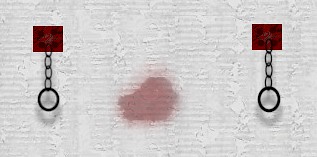A Physician Speaks Out
Washington Post: The Stain of Torture

From AMA's Code of Ethics
Physicians taking part in Gitmo torture will never individually be called upon by their peers to explain their actions. If there's one thing American doctors are exceptionally good at it, it's looking the other way when one of their own is implicated in a crime or an act of negligence.
Having served as a doctor in the Army Medical Corps early in my career and as presidential physician to George H.W. Bush for four years, I might be expected to bring a skeptical and partisan perspective to allegations of torture and abuse by U.S. forces. I might even be expected to join those who, on the one hand, deny that U.S. personnel have engaged in systematic use of torture while, on the other, claiming that such abuse is justified. But I cannot do so.
It's precisely because of my devotion to country, respect for our military and commitment to the ethics of the medical profession that I speak out against systematic, government-sanctioned torture and excessive abuse of prisoners during our war on terrorism. I am also deeply disturbed by the reported complicity in these abuses of military medical personnel. This extraordinary shift in policy and values is alien to my concept of modern-day America and of my government and profession.

From AMA's Code of Ethics
E-2.067 Torture
Torture refers to the deliberate, systematic, or wanton administration of cruel, inhumane, and degrading treatments or punishments during imprisonment or detainment.
Physicians must oppose and must not participate in torture for any reason. Participation in torture includes, but is not limited to, providing or withholding any services, substances, or knowledge to facilitate the practice of torture. Physicians must not be present when torture is used or threatened.
Physicians may treat prisoners or detainees if doing so is in their best interest, but physicians should not treat individuals to verify their health so that torture can begin or continue. Physicians who treat torture victims should not be persecuted. Physicians should help provide support for victims of torture and, whenever possible, strive to change situations in which torture is practiced or the potential for torture is great. (I, III)
Issued December 1999.
Physicians taking part in Gitmo torture will never individually be called upon by their peers to explain their actions. If there's one thing American doctors are exceptionally good at it, it's looking the other way when one of their own is implicated in a crime or an act of negligence.















<< Home